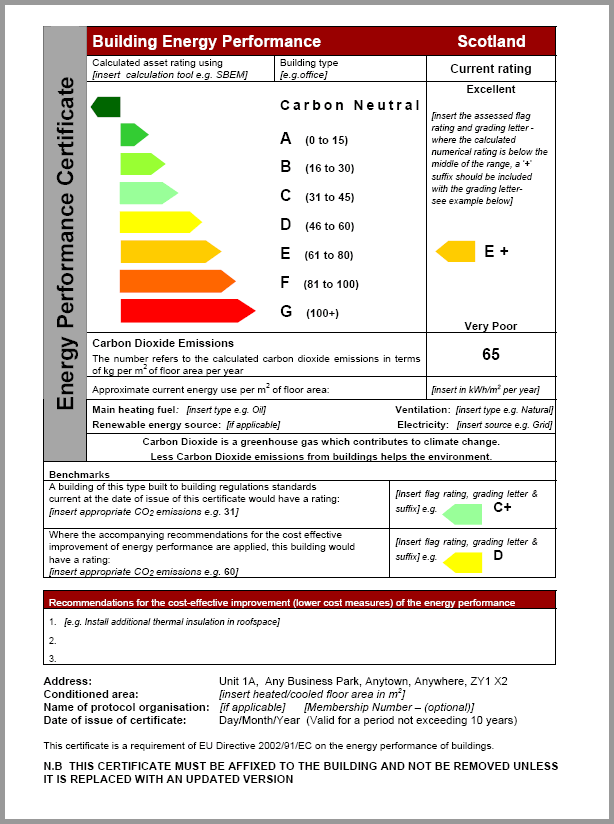An Energy Performance Certificate (EPC) is a legally required document that outlines the energy efficiency of a property. Whether you’re selling, renting, or building a property in the UK, obtaining an EPC is a necessary step to ensure compliance with government regulations. In this comprehensive guide, we will walk you through how to get an EPC certificate, the process involved, who can issue it, and why it matters.
What is an EPC Certificate?
An EPC Certificate evaluates a building’s energy usage and carbon dioxide emissions, ranking it on a scale from A (most efficient) to G (least efficient). The document provides recommendations to improve energy efficiency, reduce costs, and lower your carbon footprint.
Who Needs an EPC Certificate?
An EPC is legally required in the UK in the following scenarios:
- Selling a property
- Renting out a property
- Constructing a new building
- Making substantial modifications to an existing building
Failing to provide an EPC when required can result in fines up to £5,000.
Steps to Get an EPC Certificate
1. Identify a Qualified Domestic Energy Assessor (DEA)
To get an EPC, you must hire a licensed Domestic Energy Assessor. Only accredited professionals are authorised to issue valid EPCs.
How to find one:
- Visit the official Manchester EPC Register
- Use online property service platforms like Zoopla or Rightmove
- Ask your estate agent for recommendations
Tip: Always check for accreditation, experience, and reviews before hiring.
2. Book an EPC Assessment
Once you’ve selected a DEA, you’ll need to schedule an appointment for them to visit your property. During the assessment, the assessor will:
- Inspect your heating system, boiler, and radiators
- Examine wall and loft insulation
- Check window glazing
- Measure room dimensions and note building materials
The visit typically lasts between 30 minutes to 1 hour, depending on the size and complexity of the property.
3. Receive Your EPC Report
Within 24 to 72 hours after the assessment, you will receive your EPC certificate via email or download it from the EPC Register. The report includes:
- Your property’s energy efficiency rating
- Estimated energy costs per year
- Recommendations for improving efficiency
- Potential savings from each improvement
Validity: EPCs are valid for 10 years from the date of issue.
How Much Does an EPC Certificate Cost?
The cost of obtaining an EPC depends on:
- Property size
- Location
- Assessor fees
Typically, prices range from £45 to £120. It’s a good idea to compare quotes from multiple assessors to get the best deal without compromising on quality or certification authenticity.
What Does an EPC Assessment Cover?
An EPC assessor evaluates several key aspects of the property, including:
- Construction type (brick, stone, timber, etc.)
- Roof and floor insulation
- Heating system efficiency
- Secondary heating sources (like fireplaces)
- Ventilation and lighting systems
- Glazing types and window placement
All these details help determine your property’s overall energy performance.
How to Improve Your EPC Rating
Improving your EPC rating not only helps the environment but also increases your property value and appeal to buyers and tenants.
Here are some impactful upgrades:
- Install loft insulation (270mm thickness recommended)
- Upgrade to double or triple-glazed windows
- Replace old boilers with A-rated condensing models
- Switch to LED lighting
- Use smart thermostats and heating controls
- Seal draughts around doors and windows
These enhancements can improve your rating by one or two grades, saving hundreds in annual energy bills.
Legal Requirements and Penalties
It is a legal requirement in England, Wales, and Northern Ireland to have an EPC in place when selling or renting out a property. Non-compliance can lead to enforcement actions such as:
- Fixed penalty fines
- Delays in property transactions
- Void contracts
For commercial properties, the same laws apply under non-domestic EPC regulations with stricter compliance requirements and higher inspection standards.
How to Check If Your Property Has an EPC
You can search the EPC Register to find your certificate using the property’s address. This is particularly useful for:
- Landlords managing multiple properties
- Buyers verifying the energy rating before purchase
- Homeowners checking their EPC expiry date
How Long Does It Take to Get an EPC Certificate?
- Booking the appointment: Usually within 1-3 days
- Assessment time: 30-60 minutes
- Report delivery: 1-3 business days
In urgent cases, many assessors offer same-day or 24-hour services for an additional fee.
Is an EPC Required for All Buildings?
No. Some buildings are exempt from needing an EPC:
- Places of worship
- Temporary buildings (used for <2 years)
- Stand-alone buildings <50m² not used for housing
- Industrial sites or workshops with minimal energy use
Always confirm with a local authority or legal advisor if you think your property qualifies for exemption.
EPCs for Landlords and Tenants
Landlords must ensure:
- An EPC is available before marketing the property
- A copy is given to tenants before contracts are signed
Tenants should:
- Request a copy of the EPC to understand energy costs
- Use the EPC report to request efficiency improvements
Conclusion
Getting an EPC certificate is a straightforward yet vital step in property transactions, rentals, and compliance. By working with a qualified assessor, understanding the process, and following improvement recommendations, property owners can ensure legal compliance, reduce energy costs, and make their properties more attractive to buyers and tenants.
If you haven’t secured your EPC yet, don’t delay—it’s an affordable and valuable document that pays dividends in the long run.


